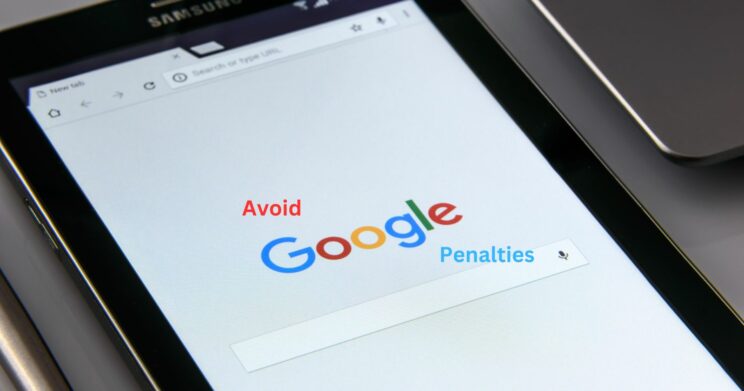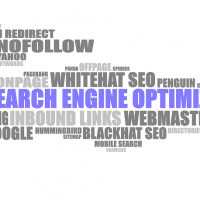Most website owners should be concentrating most of their time creating content for their sites, without worrying about how to avoid Google penalties.
What Are Google Penalties?
Google penalties are actions that block your website from search results or demote your rankings. These actions are taken both manually and via algorithms.
For example: If Google suspects you of using shady methods to get backlinks or boost your traffic, you will be penalized and lose your organic website traffic.
Most SEO experts teach you how to optimize a web page for good search engine rankings, but very few tell you what you must NOT do if you want to avoid the over-optimization penalty and see your page rank drop or your site get de-indexed.
How To Know If Your Site Has Been Penalised By Google
Here are a few tell-tale signs that your website might not be ranked by Google, or may have moved down in the rankings.
- Your website does not rank when you type in the site’s name or brand name anymore. Even if your site doesn’t rank for much else, it should at least rank on its main keyword.
- You used to have pages on the first page of Google, but now they are slipping back to page two or three without any action on your part.
- You can’t find your website in Google search results anymore at all.
- If you run a site search – site:yourdomain.com keyword – there are no results.
Here are a few things you should consider if you are serious about your site health.
How To Avoid Google Penalties

There are of course ways and means that you can avoid the proverbial ‘Google Slap.’ Most of these ways are pretty obvious because we all know that Google loves providing its searchers with great content.
Website Content Theft
Never steal content from other websites. If you want to know how to avoid Google Penalties, then this is one big no-no.
If you are reported you will immediately be banned. Not to mention other legal issues. When you do your research, it is best to read up as much as you can, and then put your findings into your own words on your site. This will give your readers your take on a subject, and not just other people’s opinions.
Duplicate Content
What is the point of having content on your site that can get found on other sites too? Google loves unique content with your spin on things. Always rewrite articles in your own words. The best way to do this is to read an article first and then write from memory.
Keyword Density
Make sure you use your keyword a couple of times within your post, but keep it under 4% or the Search Engines will flag you for spamming.
I use Yoast SEO Plugin which monitors just how often you use your keyword. The Yoast plugin also gives you many other indicators and tips on whether or not your post is good when it comes to SEO and ranking on search engines.
Watch Your Language
Do not use slang or rude words in your copy as it can get you de-indexed.
Outgoing Links
Do not put too many outgoing links on your site. If you do, make sure that the links are leading to other good-quality resources.
You also need to regularly check your outgoing links to make sure they are still working and the quality of the sites you are linking to are still good.
Is Your URL Too Long?
Try to keep your URLs less than 100 characters long and avoid using more than 4 hyphens within your URL.
Title Tag
Your title tag should contain less than 60 characters and should not contain any special characters.
Description Tag
Keep your description meta tag under 200 characters or your site ranking will drop.
Keyword Tag
Put less than 10 keywords in your keyword meta tag and make sure every keyword appears in your web page copy. Also, avoid putting the same keyword twice in your keyword meta tag.
The fact is that nowadays search engines (mainly Google) do not consider the Keyword meta tag for ranking, but if you do not follow these simple rules, you will get slapped by Google.
Proper use of Alt Text
If you use pictures and put your keyword in the alt text, your alt text must describe the picture. You could write something like: “keyword header”, “keyword image” or “keyword logo” but never stuff lots of keywords in your alt texts. Again, this would be considered keyword spamming.
Build Trust And Creditability
It helps to have a professional-looking website with your details, phone number, and even an address. This also helps your visitors to trust you more, as you look more like a real person.
Secure Your Site
You will rank a lot better in Google if you have an SSL certificate for your site. Having a secure site goes a long way in how to avoid Google penalties. These certificates can be costly, but if you host your site at Wealthy Affiliate university, this is part and parcel of the package. You will know a site is secure because they have a green padlock next to the URL.
Site Speed
The speed at which your site loads up is very important to Google. A site should never take more than three seconds to upload, or you will lose your visitors as they move on to bigger and better things. You can test your site speed on tools.pingdom.com
Regulate guest posting
Guest posting is one of the most effective strategies for building an authoritative link profile, but it could also be your website’s downfall. Excessive guest-posting, or guest-posting from an untrusted source, will raise some suspicion with the search engines.
Keep the guest posts and links relevant to your website. If visitors to your website were to click on a link, make sure it takes them to another relevant page and not one about a totally different topic.
Control Your Use Of Artificial Intelligence (AI)

AI is giving marketers a newer, faster, and easier way to create content. But will the convenience of AI come at the expense of your search ranking?
At this time, Google has made it clear that AI-generated content will not impact search rankings. As long as your content is helpful, original, and relevant, you have the green light.
In other words, Google is less concerned about how you produce content, and more concerned with the quality of the content itself.
Here you need to tread carefully. Most AI technology can write unique posts for your websites, but you still need to put your personality into it, or your content will start to look very robotic.
Your content needs to be helpful, trustworthy, and demonstrate expertise. And sometimes AI content is not all that accurate, so you do need to check your facts. Also, as the internet becomes flooded with AI-written content, the real hurdle is standing out from the masses.
Finally, remember that search engine algorithms change frequently, especially on Google. Keep yourself up to date by browsing the SEO sites and forums.
These simple rules are no guarantee that you will rank well in the search engines, however, one thing is sure, if you break these rules you will be scrambling for more ways to avoid Google penalties. You could lose page rank and maybe even get de-indexed altogether.
![]()
